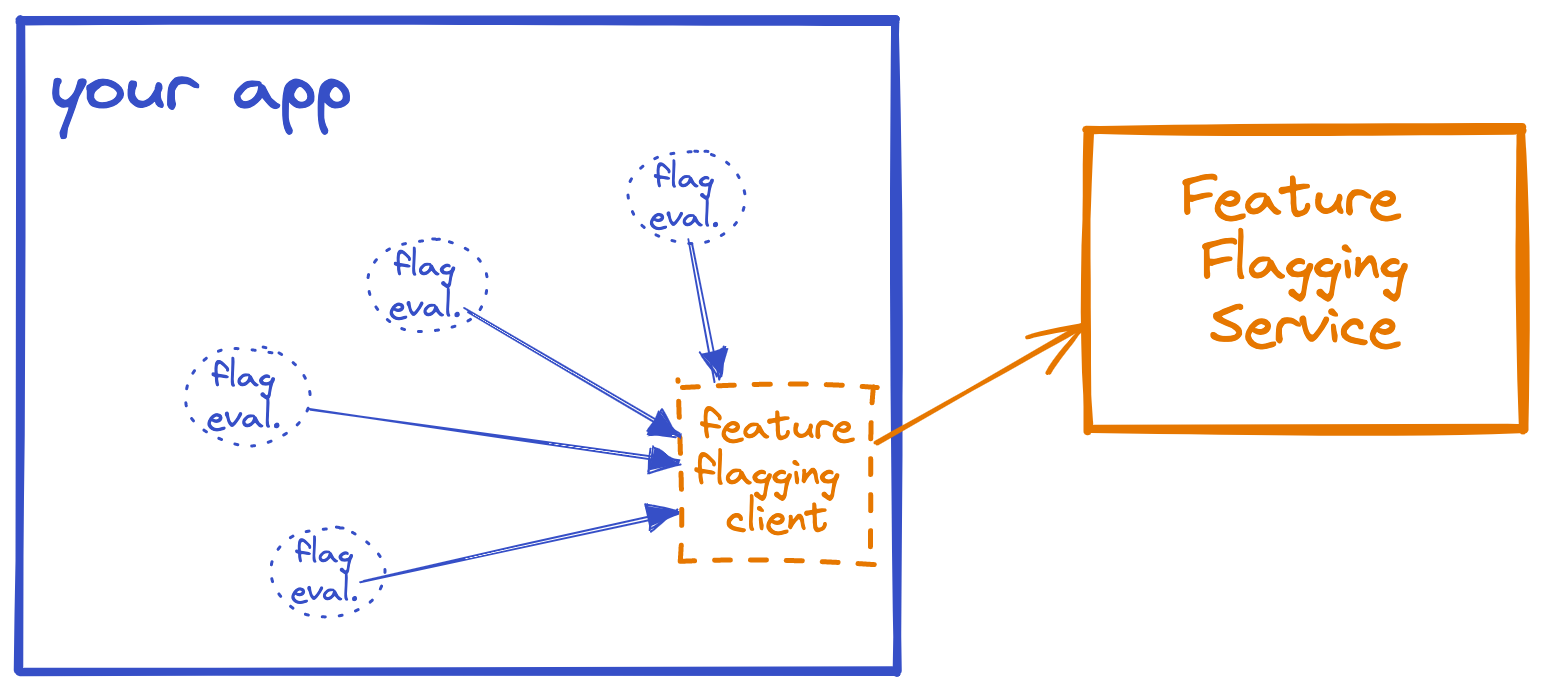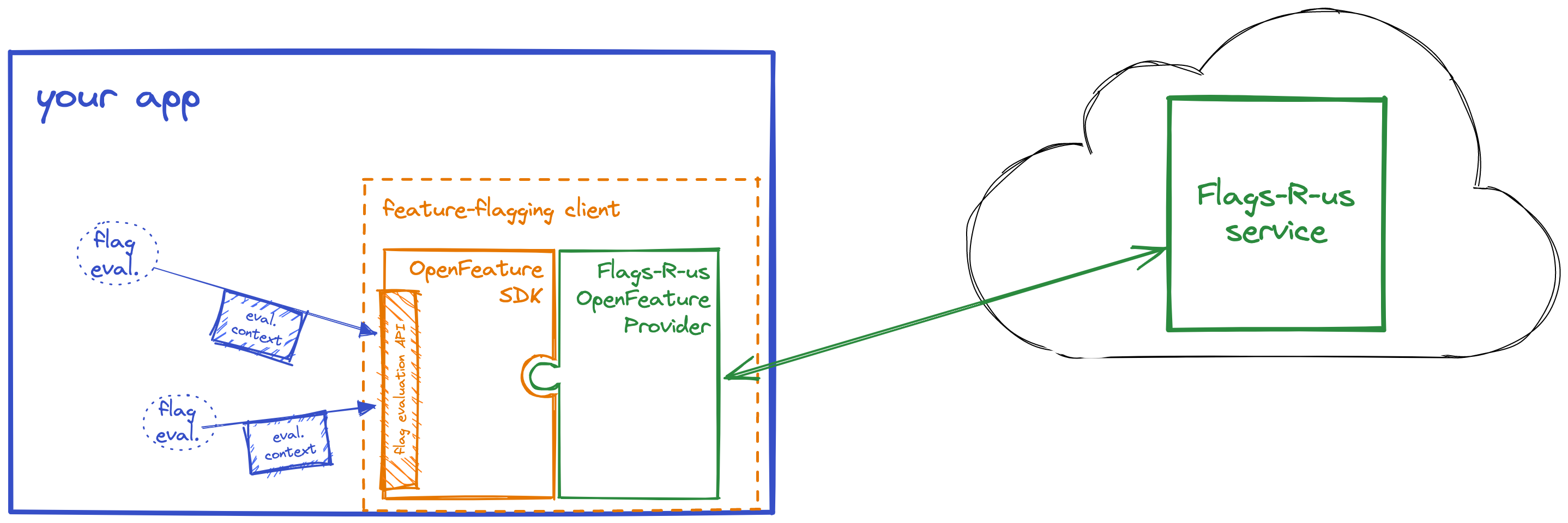Welcome to OpenFeature
OpenFeature is an open specification that provides a vendor-agnostic, community-driven API for feature flagging that works with your favorite feature flag management tool.
What are feature flags?
In the most basic case, you can think of a feature flag as an if/else statement that can be controlled at runtime. Feature flags allow application behavior to be altered without the deployment of new code.
This capability serves a variety of purposes. You can reduce the need for long-running feature branches. You can hide work-in-progress functionality from end users, while still exposing it for internal testing. You can perform canary releases - rolling out a new feature to an initially small subset of users. You can perform A/B testing. You can safely degrade parts of a production system that are experiencing an outage. You can restrict access to specific product functionality based on user-characteristics such as geography or IP address, for usability, compliance or licensing reasons.
Feature flags are dynamic; they are evaluated at runtime. Many of the use cases just described also require feature flags to be context-aware - a flagging decision must take into account things like which user is making a web request. What's more, the configuration behind flagging decisions also needs to be dynamic to support use cases like canary releases where you gradually roll a feature out to more users without having to redeploy or restart anything.
Given all these requirements (along with others such as an admin UI, audit trails, environment management, and more) it's clear that full use of feature flags requires a feature flagging system - typically a stand-alone feature-flagging service along with a client library which interacts with that service.

What is OpenFeature?
OpenFeature provides a shared, standardized feature flagging client - an SDK - which can be plugged into various 3rd-party feature flagging providers. Whether you're using an open-source system or a commercial product, whether it's self-hosted or cloud-hosted, OpenFeature provides a consistent, unified API for developers to use feature flagging in their applications.

To accomplish this, the OpenFeature SDK defines a number of flexible abstractions.
Evaluation API
The evaluation API is the part of the OpenFeature SDK that an application author interacts with. It allows developers to evaluate feature flags, and use the resulting values to impact control flow or application characteristics. The evaluation API provides a framework that allows for customization of behavior and integration with various tools.
Evaluation Context
The evaluation context is a container for arbitrary contextual data that can be used as a basis for dynamic evaluation. Static data such as the host or an identifier for the application can be configured globally. Dynamic evaluation context, such as the IP address of the client in a web application, can be implicitly propagated or explicitly passed to during flag evaluation, and can be merged with static values.
Providers
Providers are the "translation layer" between the evaluation API and the flag management system in use. Providers are responsible for mapping the arguments supplied to the evaluation API to their equivalent representation in the associated flag management system. Providers might wrap a vendor SDK, call a bespoke flag evaluation REST API, or even parse some locally stored file to resolve flag values.
Hooks
Hooks are a mechanism that allow for the addition of arbitrary behavior at various points in the flag evaluation life-cycle. Hooks let you extend the OpenFeature SDK, adding functionality such as validating a resolved flag value, modifying or adding data to the evaluation context, logging, telemetry, and tracking.
Events
Events enable the ability to react to state changes in the provider or underlying flag management system. These include changes in provider readiness, error status, or perhaps most interestingly, flag configuration changes.